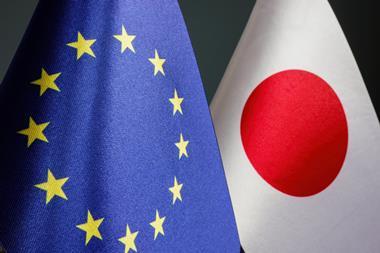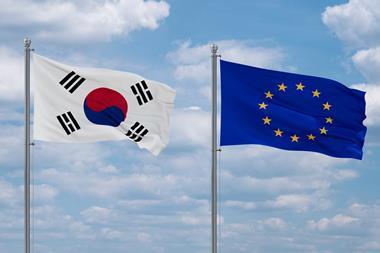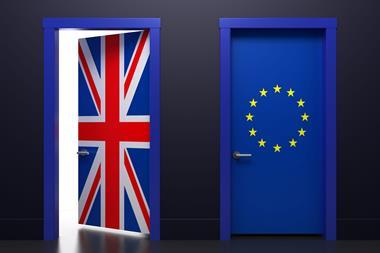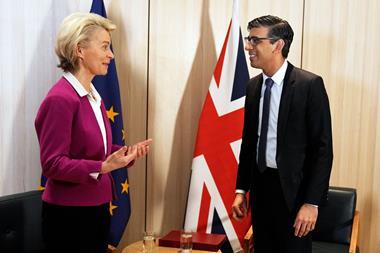‘A burst of joy’, ‘wholeheartedly welcome’, ‘tremendous news’. These are just some of the unusually ebullient reactions from the scientific community following the news that the UK will be rejoining the EU’s science programmes. The relief is palpable as every major society, institute and research organisation rushes to make its views clear: this is brilliant for UK science.
The deal will mean that scientists in the UK can once again participate in Horizon Europe and the Copernicus Earth monitoring programme after being shut out for two-and-a-half years. While the details are yet to be released in full, those that secured the deal revolved around money. A key condition is that UK taxpayers won’t have to foot the bill for Horizon Europe when the UK wasn’t associated. This part of the deal was on the table six months ago though, shortly after the Windsor Framework was agreed to resolve a trade dispute between the UK and EU. What’s new is the ‘automatic clawback’. This is meant to compensate the UK if its scientists receive ‘significantly less’ funding than the country puts in. What this phrase means exactly is unclear, but it seems unlikely that the UK will invoke that clause while its scientists are still in joint fourth place with Italy in terms of successful European Research Council (ERC) grant applications this year.
With a UK election nearing, political optics have probably played a part in the drawn out negotiations (many observers expected a deal would be agreed in February). In seeking to extract concessions from the EU, the prime minister may have been playing to the gallery – a signal to voters that he is standing up to the ‘bullying bloc’. The automatic clawback, then, is a political success for Rishi Sunak, but this politicking has added to the uncertainty and anxiety that scientists faced.
What remains to be seen now is whether the deal will reverse the brain drain that dropping out of Horizon caused. This year UK researchers have won only 32 ERC grants, which are worth tens of millions of euros, compared with 70 last year. (Researchers in Germany, Europe’s other scientific powerhouse, secured 87 grants this year.) Thirteen of those UK winners from last year – top scientists in their field – moved to new institutes within the EU, rather than give up their grant. This has been going on for two-and-a-half years now, with evidence emerging that scientists have been leaving the UK or avoiding it as a place to work because of Brexit and its knock-on effects. As the Prospect union, which represents over 150,000 people in the science sector notes, the deal is ‘long overdue and we are now playing catch up’.
Although there’s relief for UK science on its return to the Horizon fold, questions still remain. What will happen to the Pioneer scheme that was being touted as a replacement for Horizon, for example? If the government is truly committed to the UK being a ‘science superpower’, it could do worse than follow the logic of Paul Nurse’s ‘why not have both’ proposal in his recent review of the UK scientific landscape. And there’s a question mark over whether UK science has lost £1.6 billion allocated for the first two years of Horizon that was taken back by the Treasury while the negotiations dragged on. However, one thing is clear: if a knowledge economy is the future for the UK, then science should be treated as a jewel, not a football.

















No comments yet